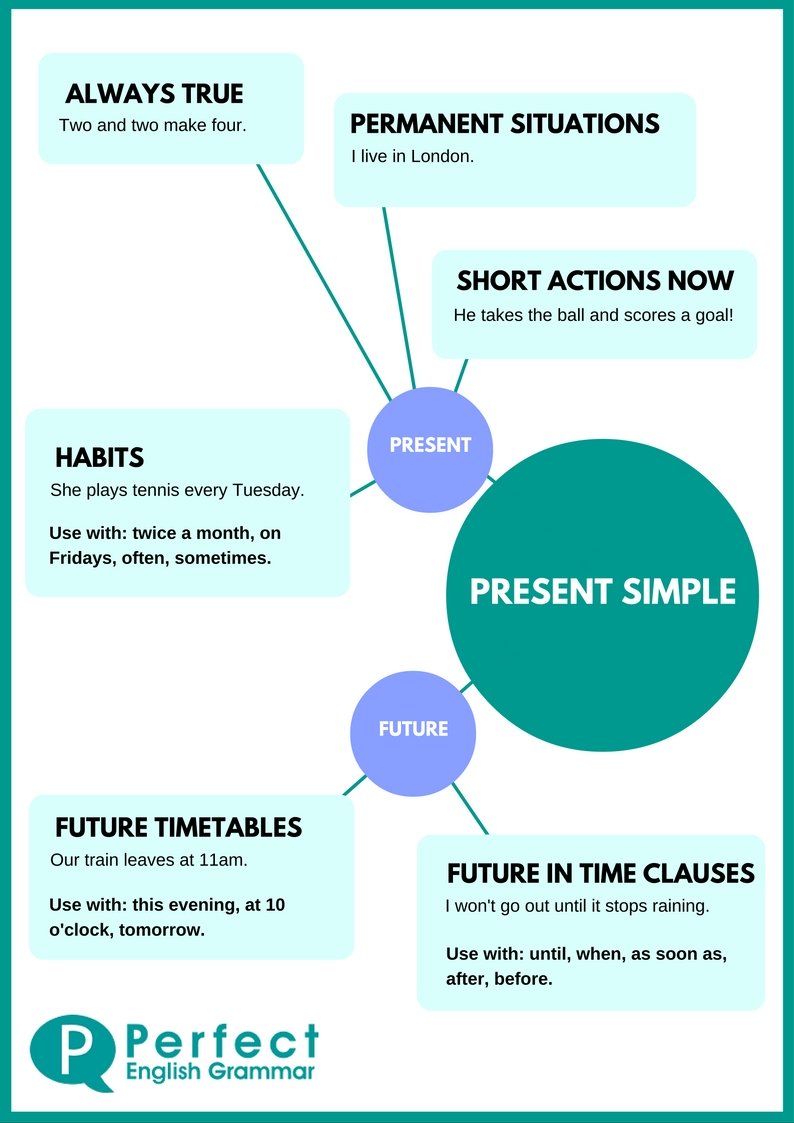
Present Uses
1: We use the present simple when something is generally or always true.
- People need food.
- It snows in winter here.
- Two and two make four.
- Where do you live?
- She works in a bank.
- I don't like mushrooms.
- Do you smoke?
- I play tennis every Tuesday.
- I don't travel very often.
- He takes the ball, he runs down the wing, and he scores!
- First I put some butter in the pan and turn on the cooker.
5: We use the present simple to talk about the future when we are discussing a timetable or a fixed plan. Usually, the timetable is fixed by an organisation, not by us.
- School begins at nine tomorrow.
- What time does the film start?
- The plane doesn't arrive at seven. It arrives at seven thirty.
- I will call you when I have time. (Not 'will have'.)
- I won't go out until it stops raining.
- I'm going to make dinner after I watch the news.
7: We use the present simple in the first and the zero conditionals. (See the conditionals section for more information.)
- If it rains, we won't come.
- If you heat water to 100 degrees, it boils.
taken from http://www.perfect-english-grammar.com/present-simple-use.html
Test your knowledge on the simple present. After submitting your answers, you will see how well you have done in the test.
No hay comentarios:
Publicar un comentario